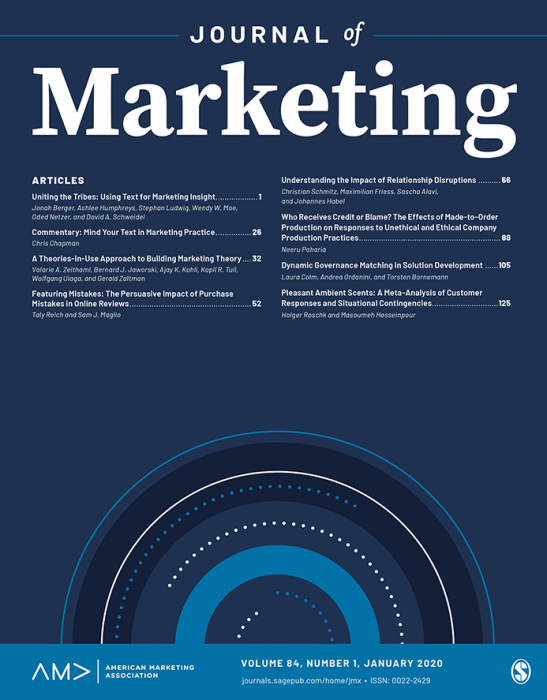EXPRESS: New Tools, New Rules: A Practical Guide to Effective and Responsible GenAI Use for Surveys and Experiments Research
IF 10.4
1区 管理学
Q1 BUSINESS
引用次数: 0
Abstract
Generative Artificial Intelligence (GenAI) tools based on Large Language Models (LLMs) are quickly reshaping how researchers conduct surveys and experiments. From reviewing the literature and designing instruments, to administering studies, coding data, and interpreting results, these tools offer substantial opportunities to improve research productivity and advance methodology. Yet with this potential comes a critical challenge: researchers often use these systems without fully understanding how they work. This article aims to provide a practical guide for effective and responsible GenAI use in primary research. We begin by explaining how GenAI systems operate, highlighting the gap between their intuitive interfaces and the underlying model architectures. We then examine different use cases throughout the research process, both the opportunities and associated risks at each stage. Throughout our review, we provide flexible tips for best practice and rules for effective and responsible GenAI use, particularly in areas pertaining to ensuring the validity of GenAI coded responses. In doing so, we hope to help researchers integrate GenAI into their workflows in a transparent, rigorous, and ethically sound manner. Our accompanying website (questionableresearch.ai) provides supporting materials, including reproducible coding templates in R and SPSS and sample pre-registrations.EXPRESS:新工具,新规则:有效和负责任的基因用于调查和实验研究的实用指南
基于大型语言模型(llm)的生成式人工智能(GenAI)工具正在迅速重塑研究人员进行调查和实验的方式。从回顾文献和设计工具,到管理研究,编码数据和解释结果,这些工具为提高研究效率和推进方法提供了大量机会。然而,这种潜力带来了一个关键的挑战:研究人员经常在没有充分了解其工作原理的情况下使用这些系统。本文旨在为在基础研究中有效和负责任地使用GenAI提供实用指南。我们首先解释GenAI系统是如何运作的,强调它们的直观界面和底层模型架构之间的差距。然后,我们在整个研究过程中检查不同的用例,包括每个阶段的机会和相关风险。在整个评审过程中,我们为有效和负责任地使用GenAI提供了最佳实践和规则的灵活提示,特别是在确保GenAI编码响应的有效性方面。在这样做的过程中,我们希望帮助研究人员以透明、严格和合乎道德的方式将GenAI整合到他们的工作流程中。我们的随附网站(questionlerresearch .ai)提供了支持材料,包括R和SPSS中可重复的编码模板以及样本预注册。
本文章由计算机程序翻译,如有差异,请以英文原文为准。
求助全文
约1分钟内获得全文
求助全文
来源期刊

Journal of Marketing
BUSINESS-
CiteScore
24.10
自引率
5.40%
发文量
49
期刊介绍:
Founded in 1936,the Journal of Marketing (JM) serves as a premier outlet for substantive research in marketing. JM is dedicated to developing and disseminating knowledge about real-world marketing questions, catering to scholars, educators, managers, policy makers, consumers, and other global societal stakeholders. Over the years,JM has played a crucial role in shaping the content and boundaries of the marketing discipline.
 求助内容:
求助内容: 应助结果提醒方式:
应助结果提醒方式:


